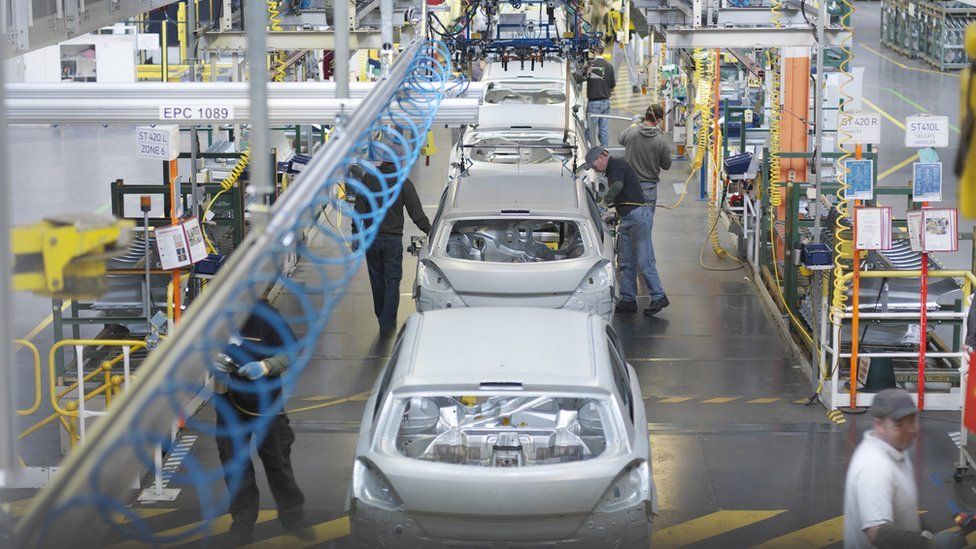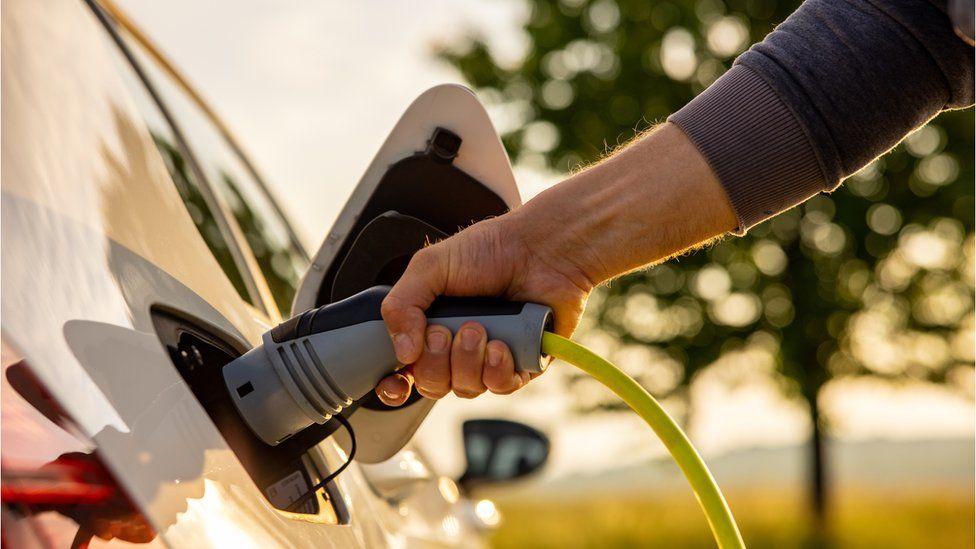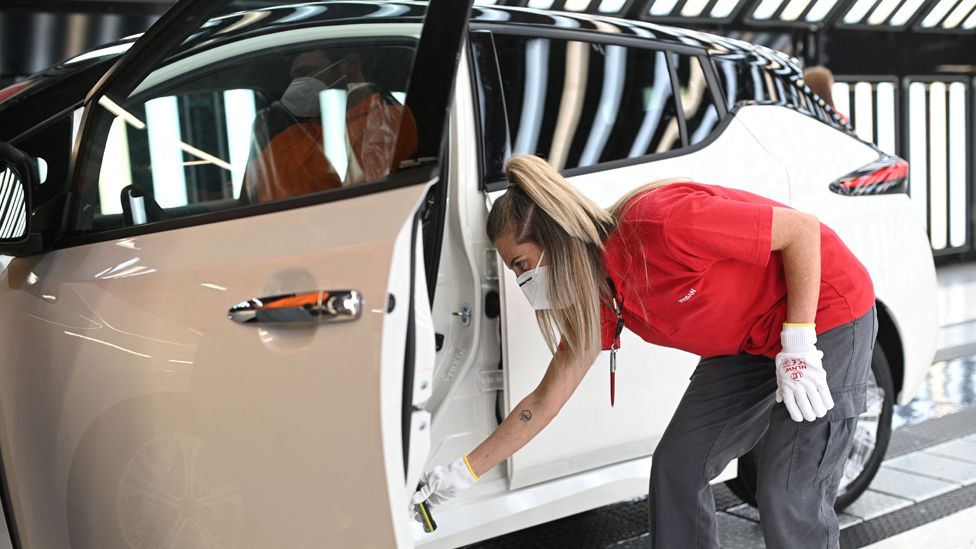
The UK’s car sector could disappear unless the government follows the US and EU in helping with the switch to electric, an industry veteran warned.
It was “probable” car firms would leave the UK without a huge subsidy package similar to the billions of support the US is providing, Andy Palmer said.
The sector is facing the “last throw of the dice”, Mr Palmer added, who has had senior jobs at Nissan and Aston Martin.
The chancellor has said the UK will not go “toe-to-toe” with the US and EU.
Jeremy Hunt told the Times newspaper that the UK’s approach to attract investment would be “better”.
Mr Palmer is now chairman of electric battery firm Inno-bat, but has previously worked as chief operating officer at Nissan and is a former chief executive of Aston Martin.
He told the BBC’s Today programme that said the UK was “managing decline” in its car-making industry, but had a “last opportunity” to boost the sector and jobs in the move to electric vehicles.
However, he warned huge subsidy packages were needed for UK-based companies, similar to such schemes announced in the US and being consulted on currently by the EU.
If such schemes are not created, Mr Palmer said, it was “not only possible, it’s probable” that the car manufacturers currently based in the UK would leave and go elsewhere.
“You are into a period of either you compete… or you manage the decline of the British industry down to fundamentally next to zero,” he said.
“We have the last throw of the dice in order to bring back some part of that industry, if we don’t then we have to look for alternative employments for the 820,000 people.”
The warning comes after the US announced the Inflation Reduction Act (IRA), which offers billions of dollars in subsidies and tax credits to US businesses producing greener technologies, including electric vehicles, renewable electricity and sustainable aviation fuel.
The EU has responded with plans for a Net Zero Industry Act to increase its subsidies for green industry.
The UK government told the BBC officials were engaging with the US administration “to address serious concerns” about the Inflation Reduction Act, as well as talking to other countries across the world “who are similarly affected”.
The government said it would “continue to robustly defend the interests of UK industry”.
The latest comments come after Mr Hunt said in the Times that the UK would not go toe-to-toe with its allies and get involved what he called “some distortive global subsidy race”.
“Our approach will be different – and better,” Mr Hunt said. “With the threat of protectionism creeping its way back into the world economy, the long-term solution is not subsidy but security.”
The car industry is undergoing a massive transformation as governments across the world look to move away from using fossil fuels, meaning traditional petrol and diesel vehicle combustion engines are to become a thing of the past.
A part of plans to cut carbon emissions, the government has said sales of new petrol and diesel cars will be banned in the UK by 2030.
But there are concerns that firms are not getting enough state support in the journey to electric cars becoming mainstream.
In recent years, Honda has closed its Swindon car plant, with the loss of about 3,500 jobs, due what it called to global changes in the car industry and the need to launch electric vehicles.
But BMW is understood to preparing to invest up to £600m in its Mini plant in Cowley, Oxford, for building electric models, though no final decision has been announced.
In January, the number of new cars made in the UK sunk to its lowest level since 1956.
The SMMT said Britain had a “firm foundation” for expanding the production of electric vehicles, but warned “we must not squander these advantages”.
“We need a framework and pitch that allows us to compete,” it said.
But the government said it was providing support through existing schemes and a research and development programme.
It said Nissan and Envision investing £1bn to create a electric vehicle factory in Sunderland was an example of car manufacturers “choosing the UK thanks to our competitive investment environment”.
Business and Trade Secretary Kemi Badenoch has called the US support “protectionist”, while Energy Secretary Grant Shapps has said it is “dangerous”.
But Mr Palmer, who played a role in the launch of the Nissan Leaf car, said firms were “bound to look at where the biggest subsidies are coming from” while making investment decisions.
“If you’re not prepared to compete, then you’ll have to start managing decline,” he said.




Totally agree with your arguments, well said.